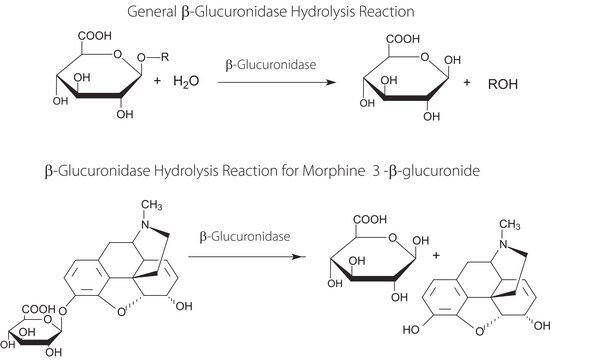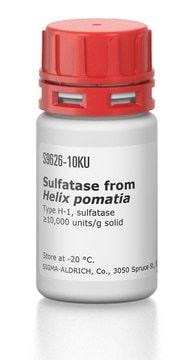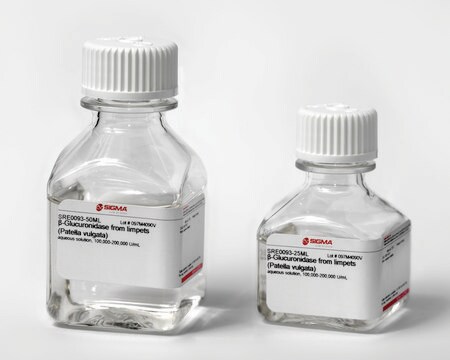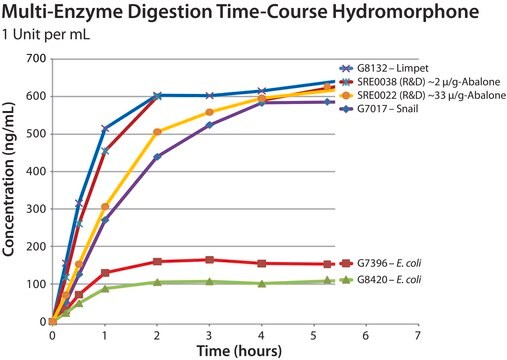G8885
β-Glucuronidase from Helix pomatia
Type H-3, aqueous solution, ≥90,000 units/mL
Synonym(s):
β-D-Glucuronide glucuronosohydrolase
About This Item
Recommended Products
type
Type H-3
form
aqueous solution
specific activity
≥90,000 units/mL
secondary activity
≤1,000 units/mL sulfatase
shipped in
wet ice
storage temp.
2-8°C
Looking for similar products? Visit Product Comparison Guide
General description
Application
- to convert isoflavone conjugates to their aglycone forms in urine and soymilk samples for high performance liquid chromatography (HPLC) detection
- as a component in the protoplasting solution
- for the generation of aromatic and phenolic compounds from the plasma and urine samples for gas chromatography-mass spectrometry (GC-MS)
- to hydrolyze glucuronide and sulfate conjugated metabolites in fecal samples
Learn more
about recent application data generated by Sigma R&D to optimize hydrolysis for different drug classes using enzymes from different sources and the use of a chromatographicaly purified enzyme to reduce the effect of esterase activity resulting in conversion of 6-MAM to Morphine
Biochem/physiol Actions
Quality
Unit Definition
Physical form
Signal Word
Danger
Hazard Statements
Precautionary Statements
Hazard Classifications
Resp. Sens. 1
Storage Class Code
12 - Non Combustible Liquids
WGK
WGK 1
Flash Point(F)
Not applicable
Flash Point(C)
Not applicable
Certificates of Analysis (COA)
Search for Certificates of Analysis (COA) by entering the products Lot/Batch Number. Lot and Batch Numbers can be found on a product’s label following the words ‘Lot’ or ‘Batch’.
Already Own This Product?
Find documentation for the products that you have recently purchased in the Document Library.
Customers Also Viewed
Articles
β-glucuronidase (GUS) enzymes are utilized to hydrolyze glucuronide (gluc) drug metabolites to the parent drug, facilitating analysis by LC-MS/MS.
Protocols
Enzymatic Assay of ß-Glucuronidase (EC 3.2.1.31) from Helix Pomatia and Bovine Liver. This procedure applies to all b-Glucuronidase products that are derived from Helix Pomatia and Bovine Liver. It is the responsibility of trained Analytical Services laboratory personnel to follow this procedure as written.
Our team of scientists has experience in all areas of research including Life Science, Material Science, Chemical Synthesis, Chromatography, Analytical and many others.
Contact Technical Service






